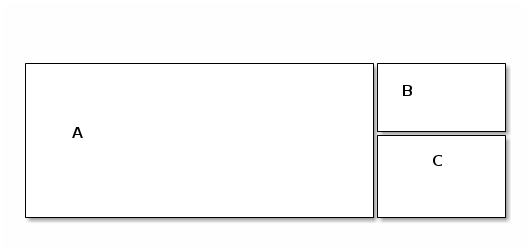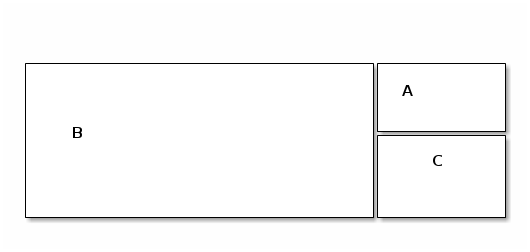Back in May, I read this post about Angela Duckworth and Grit. Grit
has become an education buzzword in the past few years so I figured I
should read Duckworth's book. It took this long because there was a
long waiting list at the New York Public Library to get the ebook. I'm
still not quite finished with the book but I thought I'd share some of
my thoughts on the book and the buzz.
The first big takeaway is "you can get much further with a kind word
and a gun than with a kind word alone." Or in grit terms Duckworth
says a number of times that Grit is important but that other factors
such as talent do indeed come into play and towards the end of the
book she lists other character qualities that are arguably more
important than grit. I'll get back to grit + other qualities towards
the end of this post. On the buzz side, all of that's forgotten - in
the ed reform world it's all grit all the time. We must teach it at
our low income schools and we should include grit in our evaluation of
teachers and schools.
Duckworth recently has come out to say grit shouldn't be used in
evaluating schools and teachers but as I mentioned a few days ago,
ed reformers have ways of taking arguably good ideas and using them towards
awful ends.
So we have a basic premise that hard work and sticktoitiveness is
important but so is talent. Talent alone won't get you as far as
talent and grit.
So in spite of the "ed reformers" take on grit, given Duckworth's
balanced perspective, I was hooked.
Where Duckworth started to lose me, however is when she dove into the
education landscape for examples.
First up is Teach for America. Certainly the founder, Wendy Kopp is
full of grit and Duckworth talks about teachers needing to be gritty
but when you talk about TFA, you're talking about a group that:
- has a 5 week training program - not nearly enough to learn to teach
- has a 2 year commitment before moving to "better things"
- encourages practices like scripted lessons
None of this sounds particularly gritty to me.
Duckworth also highlights the KIPP charter chain as an terrific
example of grit and the success that follows. She touts KIPP's
graduation rate neglecting to mention that like most other charters
claiming miracles, KIPP's stats should be eyed with scrutiny (link, link,
link). I would have expected a researcher to dig a little deeper.
My friend, former colleague, and TFA alum Gary Rubinstein visited a
KIPP school in NY a few years ago. His take:
So what I saw there was not very impressive. I didn’t see any classes
where teachers were getting that mythical period and half of growth in
one period. I saw some good teaching, mostly average teaching, and
even some very bad teaching. I saw a novice teacher struggle to
control a class of nine students. They were walking all over him and
accomplished very little that period.
And in terms of KIPP's grit training:
I also saw the ‘grit’ training program which amounted to the students
getting the teacher to define very clearly how little homework they
would have to do to still get their candy bar rewards.
Finally, Duckworth holds up Geoffrey Canada's as another shiny example
failing to notice that again, the Emperor has no clothes and if you
look at attrition, the results are far from stellar.
All of this left me thinking that if Duckworth was so off base with
these three example where I have some details of the behind the scenes
going on, how much can I trust the rest of the book?
In spite of this, I still agreed with Duckworth's basic premise so I
read on.
Later in the book, Duckworth talks about developing grit. This quote struck me:
Like a lot of parents I had a strong intuition that grit is enahnced
by doing activities like ballet… or piano … or football…
It struck me because it seemed funny coming from a researcher. It
reminded me of Christopher Alexander's "A Timeless Way of Building," a
book on architecture that is sometimes credit as the root source for
Object Oriented Programming. Alexander talks about how societies
throughout history and throughout the world "knew" how to build
certain structures – barns, homes with certain features, even
towns. Back in the day we didn't have engineering and architecture
schools but we figured out how to do these things and we figured it
out pretty much universally. Duckworth is basically saying "parents
know." It reminded me of my belief - "teachers know." This applies to
teaching content and teaching skills like grit. You can't script a
grit lesson. A good teacher knows when a student needs encouragement,
when a student needs to be coddled and when a student needs to be
redirected.
This post has been something of a ramble but I want to get back to
grit and other qualities and how people are talking about grit as the
be all and end all and not just a component.
Over on AVC, in the post that got me to read Grit, Fred closed with:
If you hire and manage people, if you run start and run companies, if
you invest in people and their projects, then Grit is a book you
should read.
He's absolutely right but remember the whole person and what you've
prescreened for before you consider grit.
Way back when discussions were ongoing about the design for AFSE -
before the DOE stopped returning my emails and froze me out of the
process I was at am meeting. A bunch of tech industry heavy hitters
were there. We were arguing over admission screening - did the school
need one. My position was that if you wanted to produce "Google ready"
engineers after high school you needed one. If that wasn't the goal
you didn't. One of the DOE representatives posed a question to the
tech people: "what qualities do you look for in a hire?" This elicited
responses like hard working, able to work with others, able to
communicate. The DOE person was proud to have made his point that
these tech companies weren't looking for talent, advanced skills
anything similar - grit was all you needed. I followed up - "and from
what schools do you look for the kids with these qualities?" - MIT,
Harvard, Cornell… and the tech people got it - they were already
screening for the academic stuff so all that was left to look for were
the other skills.
Should we look at grit? Certainly. Just remember that it's a piece of
the puzzle just like everything else.



